In 1905 former naval officer Gabriel Ernest Maurice Ballot, referred to down the ages as Ernest and or Maurice, with his brother Albert founded the company bearing their name in Paris to manufacture marine and industrial engines.
Six years later a group led by Adolphe Clément bought the company keeping Ernest as a senior employee with a small number of shares.
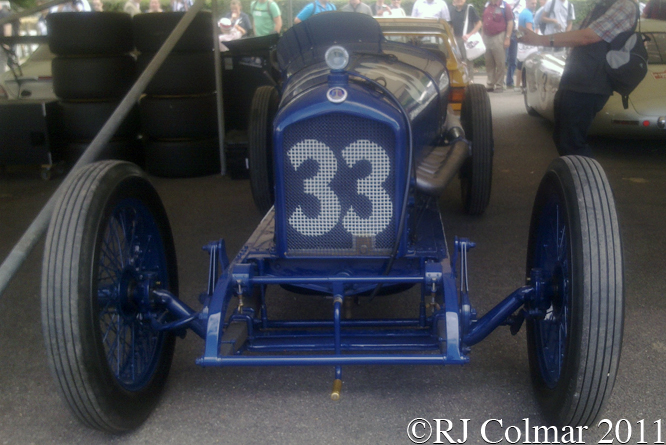
Following the cessation of the 1914 – 18 global hostilities, on the 11th of November, the 1914 Indy 500 winner René Thomas set about reviving his racing career and the fortunes of the French automobile industry by trying unsuccessfully to find a manufacturer to build a team of new cars to compete in the 1919 Indy 500.
Six weeks after Armistice Day René presented his idea’s to Ernest, who up until then had only been engaged in the manufacture of engines, never complete cars, but he was so enthused that by the end of December 24th he had persuaded the board of Ballot to go ahead with the project and signed René as lead driver.
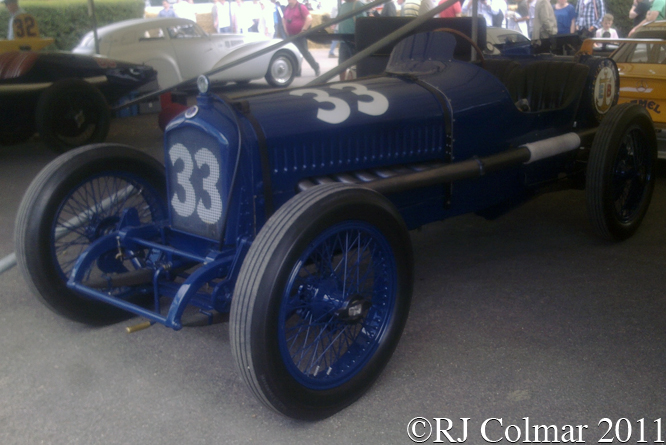
With just 120 days in which to design, build and test the cars before being shipped to the United States on the 26th of April, Ernest spent the next two days finding new premises from which his racing team led by former Peugeot designer Ernst Henry and assistant Fernand Marie Vadier could work in secret.
On December 27th the Henry, Vadier and three draughtsmen began work which allegedly would see no man leave the building except to take meals for two months.
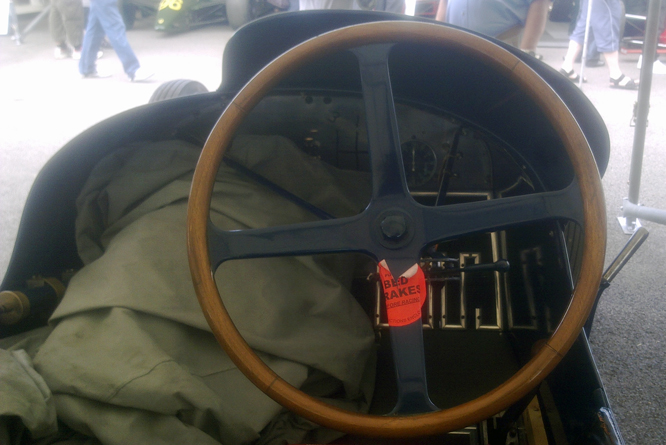
Work started to fall behind schedule when the team could not secure a reliable supplier of crankshafts, leaving Ballot no option but to forge and heat treat it’s own, but on April 7th the first Ballot car ever built was complete with only the carburetor, magneto and wheels sourced from outside suppliers.
The French rail network was still so unreliable that the four crated racing cars left the Ballot factory on April 24th carried on the back of four trucks followed by a spare fifth truck with a couple of mechanics to ensure the team arrived at Le Havre on April 26th in time for the departure of the liner Savoie.
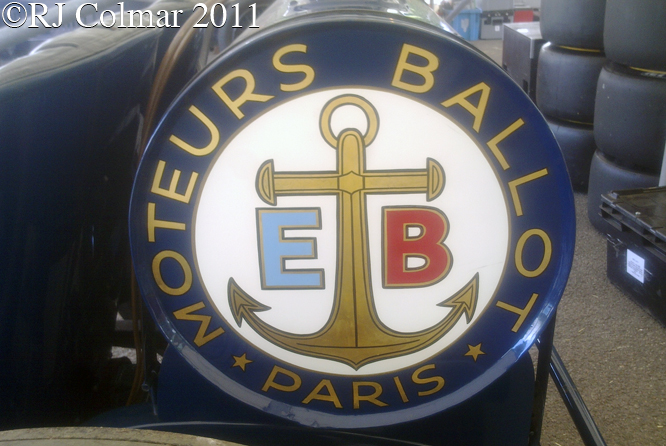
Powered by 140hp straight eight engines with double over head cam shafts the Ballots were quick once the problem of over gearing had been sorted by fitting smaller diameter American sourced wheels.
René was the fastest qualifier with a speed of 104.700 mph and started from pole with the remaining team cars starting 6th driven by Paul Balbot, 9th driven by Albert Guyot and 13th driven by Louis Wagner.
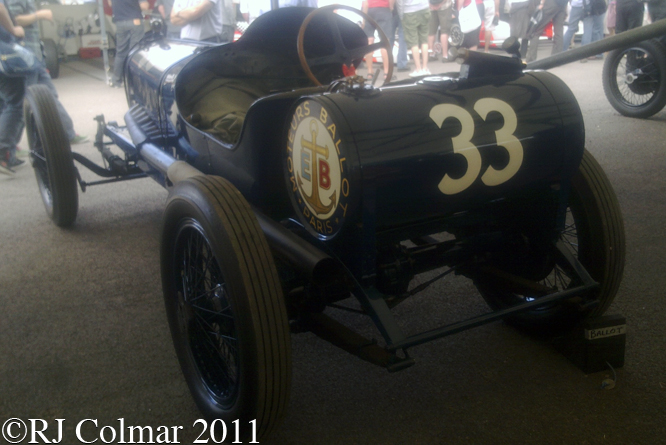
44 laps into the race a wheel broke on Louis Wagner’s car leading to a crash from which Louis emerged unscathed and sufficiently composed to take over from Albert Guyot whose hands were raw from blisters caused by the rough brick surface.
20 laps later Jean Chassagne who had taken over today’s featured chassis #1003 from Paul Balbot also crashed after a wheel collapsed again with out serious injury, but leaving the remaining two cars no choice but to pit for frequent wheel checks.
Louis eventually crossed the line in forth place with team leader René 11th, ironically the winning car driven by Howdy Wilcox was an older 1914 Peugeot another Ernst Henry design.
After receiving the telegram in Paris informing him of the teams misfortune Ernest sat in silence for a while before tossing them aside and growling “C’est ma poisse!” – It’s my bad luck.
After the race owners of #1003 included Centric Supercharger founder Christopher Shorrock and Anthony Heal in the UK, then D. Cameron Peck in Chicago, Briggs Cunningham and finally the Collier Collection.
Thanks for joining me on this “C’est Ma Poisse !” edition of “Gettin a li’l psycho on tyres” I hope you will join me again for Mercedes Monday tomorrow. Don’t forget to come back now !
14/07/16 Thanks to Tim Murray and others at The Nostalgia Forum I have corrected the names Édouard and Maurice that originally appeared in this article to Gabriel Ernest Maurice and Albert.

